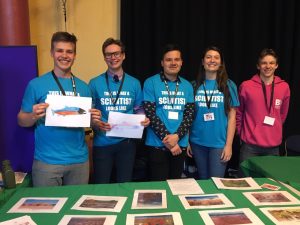
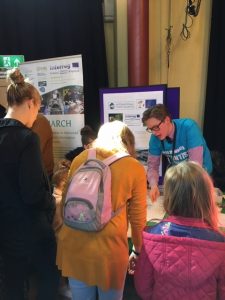
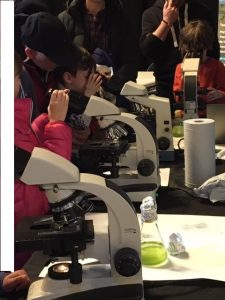
To celebrate the National Science Week we organised a Family Science Festival in Dorchester’s Corn Exchange (17th March 2019). The Festival was an incredible success, with more than 2,200 visitors exploring the science presentations and workshops organised by Bournemouth University in partnership with Dorset County Museum, Dorchester Town Council and the Thomas Hardye School. Our ambition is to make this festival an annual event, and rename it Dorchester Science Festival, which would run over a whole week-end. Many BU undergraduate and postgraduate students and staff were involved in the activities offered to the general public. Genoveva Esteban (co-organiser and master minder of the event), Dan Franklin, Matthew Bennet, Sally Reynolds, Adrian Newton, Marcin and Dominika Budka, and Stephen Watson’s hands-on activities were all enthusiastically received by children and adults. The atmosphere was captured on film by BU’s award-winning media production agency Red Balloon.
The event was sponsored by EU-Interreg project SAMARCH, the Royal Society of Biology, Dorchester Town Council and BU. We are also grateful to the ScienceIRL Project developed by the Indian River Lagoon Science Festival SAMA (Florida, USA) for sharing the “This is what a scientist looks like” T-shirt idea with us.
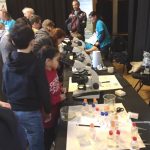 Science for all, and all for Science!
Science for all, and all for Science!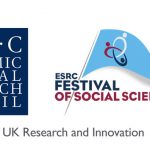 ESRC Festival of Social Science 2019: Call for proposals
ESRC Festival of Social Science 2019: Call for proposals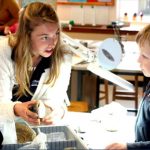 Family Science Fair
Family Science Fair










 Nursing Research REF Impact in Nepal
Nursing Research REF Impact in Nepal Fourth INRC Symposium: From Clinical Applications to Neuro-Inspired Computation
Fourth INRC Symposium: From Clinical Applications to Neuro-Inspired Computation ESRC Festival of Social Science 2025 – Reflecting back and looking ahead to 2026
ESRC Festival of Social Science 2025 – Reflecting back and looking ahead to 2026 3C Event: Research Culture, Community & Cookies – Tuesday 13 January 10-11am
3C Event: Research Culture, Community & Cookies – Tuesday 13 January 10-11am Dr. Chloe Casey on Sky News
Dr. Chloe Casey on Sky News ECR Funding Open Call: Research Culture & Community Grant – Application Deadline Friday 12 December
ECR Funding Open Call: Research Culture & Community Grant – Application Deadline Friday 12 December MSCA Postdoctoral Fellowships 2025 Call
MSCA Postdoctoral Fellowships 2025 Call ERC Advanced Grant 2025 Webinar
ERC Advanced Grant 2025 Webinar Horizon Europe Work Programme 2025 Published
Horizon Europe Work Programme 2025 Published Update on UKRO services
Update on UKRO services European research project exploring use of ‘virtual twins’ to better manage metabolic associated fatty liver disease
European research project exploring use of ‘virtual twins’ to better manage metabolic associated fatty liver disease